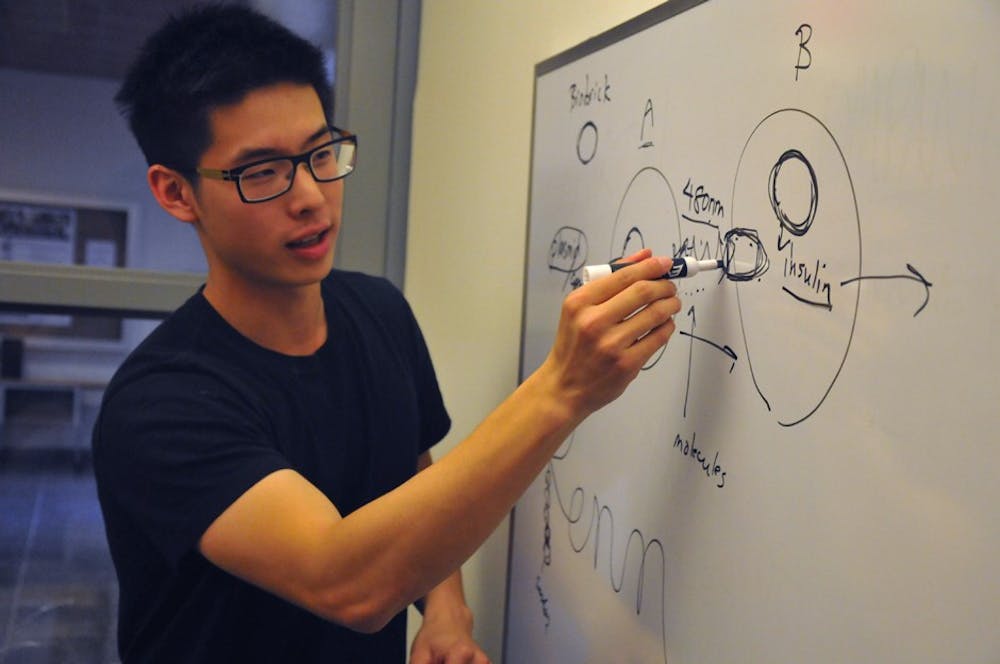While many Penn students will spend fall break at home, one group will be traveling to Indianapolis, IN to compete in the International Genetically Engineered Machine competition.
Over the summer, Penn’s first iGEM team worked to develop a biological system of mammalian cells that can interact “wirelessly.” While most cells communicate through chemical diffusion, Penn iGEM’s project involves creating a biological system that can communicate through photons, ultimately creating a chain reaction of light.
While the project could be useful for something as trivial as light drawing, the students’ research also has the potential for a more serious application.
Since individuals with Type I diabetes don’t have the ability to produce their own insulin, they have to inject themselves with it after each meal, College junior Arthur Kuan said.
The Penn iGEM project could eventually lead to a biological system where a cell could release a certain wavelength of light that allowed the next cell to produce the insulin that the body would need, ultimately removing the need for needles.
“I think we have a pretty good shot [in the competition],” Wharton and Engineering junior Michael Magaraci added.
IGEM first began in 2003 at the Massachusetts Institute of Technology in Cambridge, MA with a four-week course, where students were challenged to develop biological systems that could be planted in living cells. Eight years later, the competition still holds the same goal, but now 176 teams from all over the world are striving to become this year’s champion.
Teams will first compete through regional “Jamborees” in Europe, the Americas, and Asia. Winners from the regional matches will move on to the World Championship Jamboree at MIT in November.
The Penn iGEM team will be among 70 teams from North and South America at the Americas Regional Jamboree this weekend.
While the iGEM has had a relatively long history, Penn is sending its first team to the competition this year.
“It’s kind of crazy that Penn didn’t have a team up until now,” Magaraci said, adding that Penn has many strong departments which study biology.
Penn’s iGEM team first began this past January when a group of students approached Engineering assistant professor Casim Sarkar to advise their group.
“It was kind of fortuitous because I was trying to set it up already,” Sarkar said.
Once Sarkar agreed to advise the team, the next step was to find funding from a variety of sponsors, including the University City Science Center, New England Biolabs and the William and Phyllis Mack Center for Technological Innovation.
“We have to be very self-motivated,” Magaraci said.
“We pretty much walked into the lab in May where there was just an empty bench. There was nothing there. So we had to raise money for the equipment, we had to find the people, we had to find the advisors,” Wharton and Engineering junior Avin Veerakumar said.



